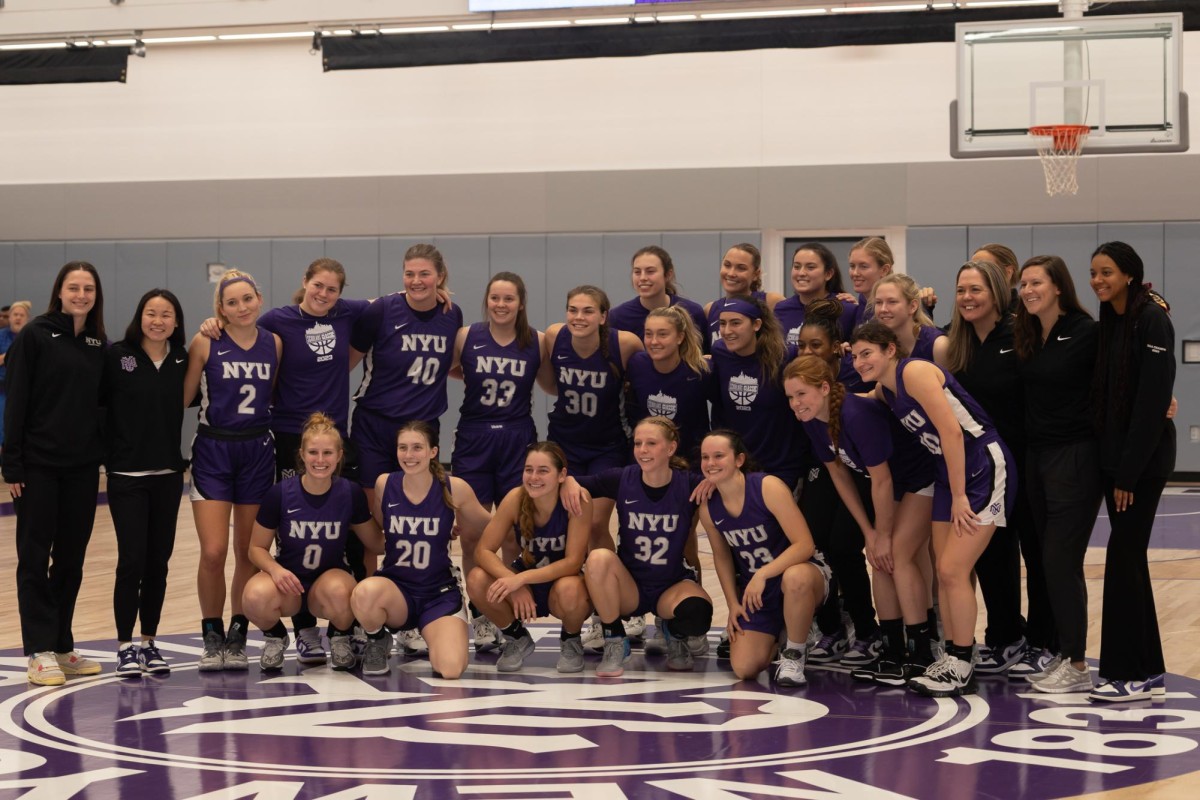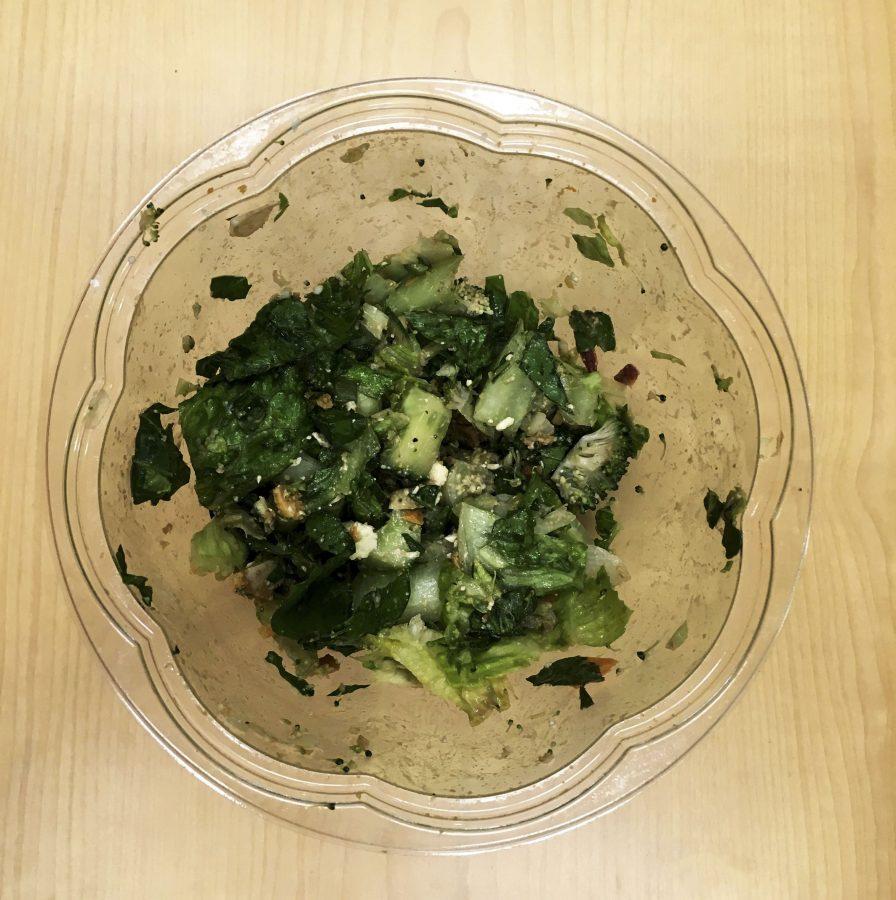NYU’s Food Waste Isn’t Actually Going to Waste
Students have worked to reduce the amount of food waste produced by NYU’s dining services, including the sample plates at the counters in dining halls.
September 6, 2016
You may casually toss the remains of the Palladium salads you don’t finish, but have you ever wondered what that actually amounts to? An average of 142 pounds of edible food is wasted per NYU student annually, according to CAS senior Mac Hughes-Cromwick. For a school that boasts more than 60,000 students, the amount of food waste is climbing to disastrous amounts.
Hughes-Cromwick decided to address this problem when he became president of Two Birds One Stone, an NYU club founded in 2006 by students who realized that the dozens of pounds of uneaten food thrown away daily by NYU Dining could be used to fight hunger in New York City.
For Hughes-Cromwick, providing food to those in need is more important than reducing the University’s environmental impact. Two Birds One Stone recovered 2,500 pounds of food that would have been thrown away in the 2015-2016 academic year alone — almost enough to feed two people for an entire year.
Every weekday, the club sends a group of three volunteers to Third North and Weinstein to pick up leftovers and takes them to the Bowery Mission.
“These missions, in my opinion, have one of the toughest jobs, which is trying to care for the extremely large homeless population in New York City,” said Hughes-Cromwick. “So while we believe that we do a good service for the community and are proud of it, we also recognize that we’re just a small piece of the puzzle.”
However, LS sophomore Juhi Dalal believes that NYU should make being responsible with its food waste a much greater part of its efforts to
increase sustainability.
“Not just Two Birds One Stone, but NYU as an institution should do more because we are so privileged and should do all that we can to help those that aren’t as privileged,” Dalal said.
While Hughes-Cromwick is grateful for the support of NYU Dining director Ann Marie Powell, he still believes that there is more to be done to reduce food waste on campus.
“I would say that NYU is definitely ahead of the curve with everything they have tried to do including the composting and recycling, but our club has tried in the past to get rid of the sample plates that showcase particular dishes and are later thrown away, and haven’t had success. I think there has to be a compromise between advertising a dish for consumption, and just wasting food,” Hughes-Cromwick said.
For now, Hughes-Cromwick believes that the actions of individual students are one of the best ways to reduce unnecessary waste and hunger.
“A reminder of food waste statistics is always good to have,” Hughes-Cromwick said. “Do not put something on your plate if you’re not going to eat it.”
A version of this article appeared in the Sunday, Sept. 6 print edition. Email Taylor Nicole Rogers at [email protected].












































































































































